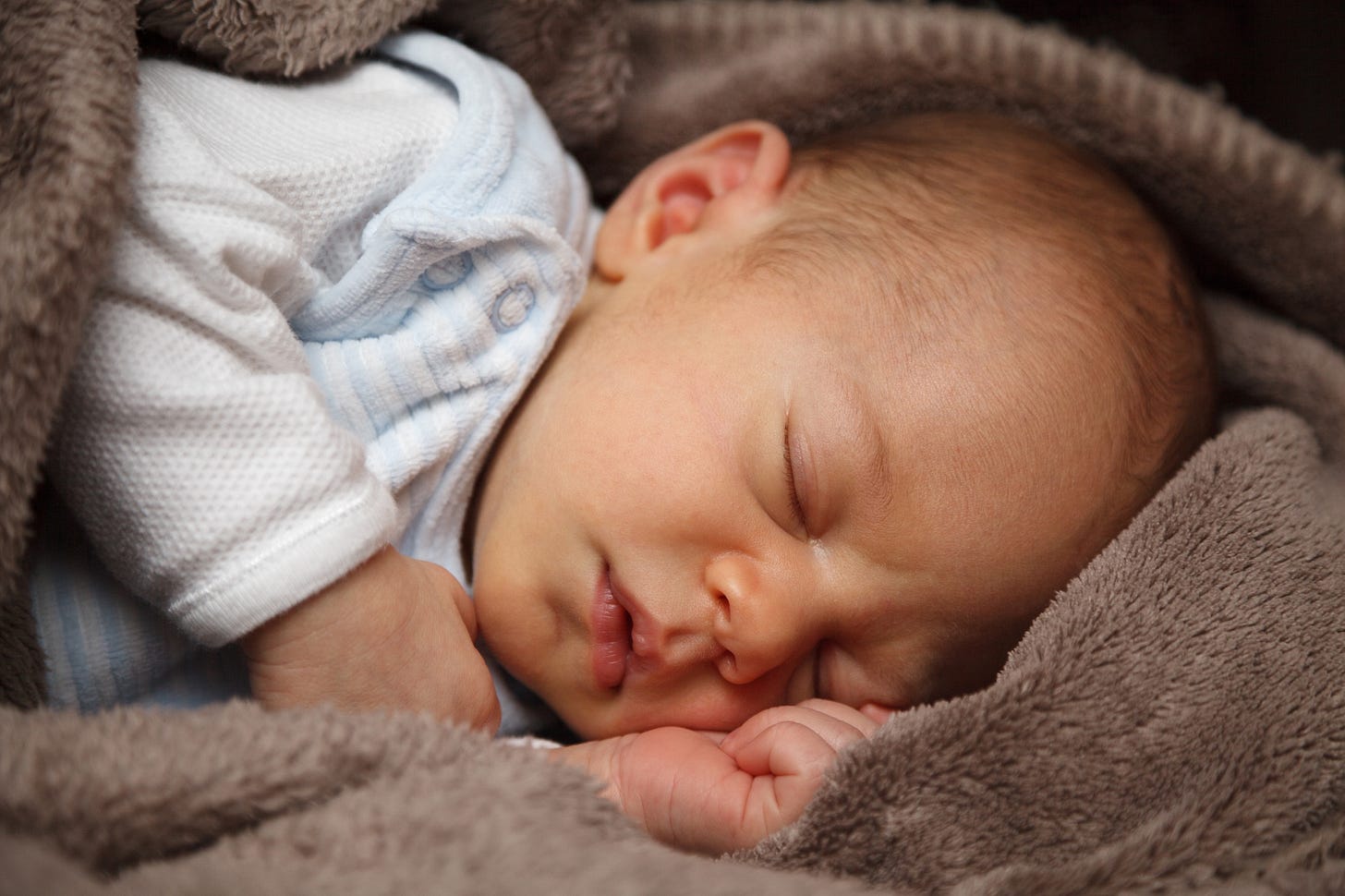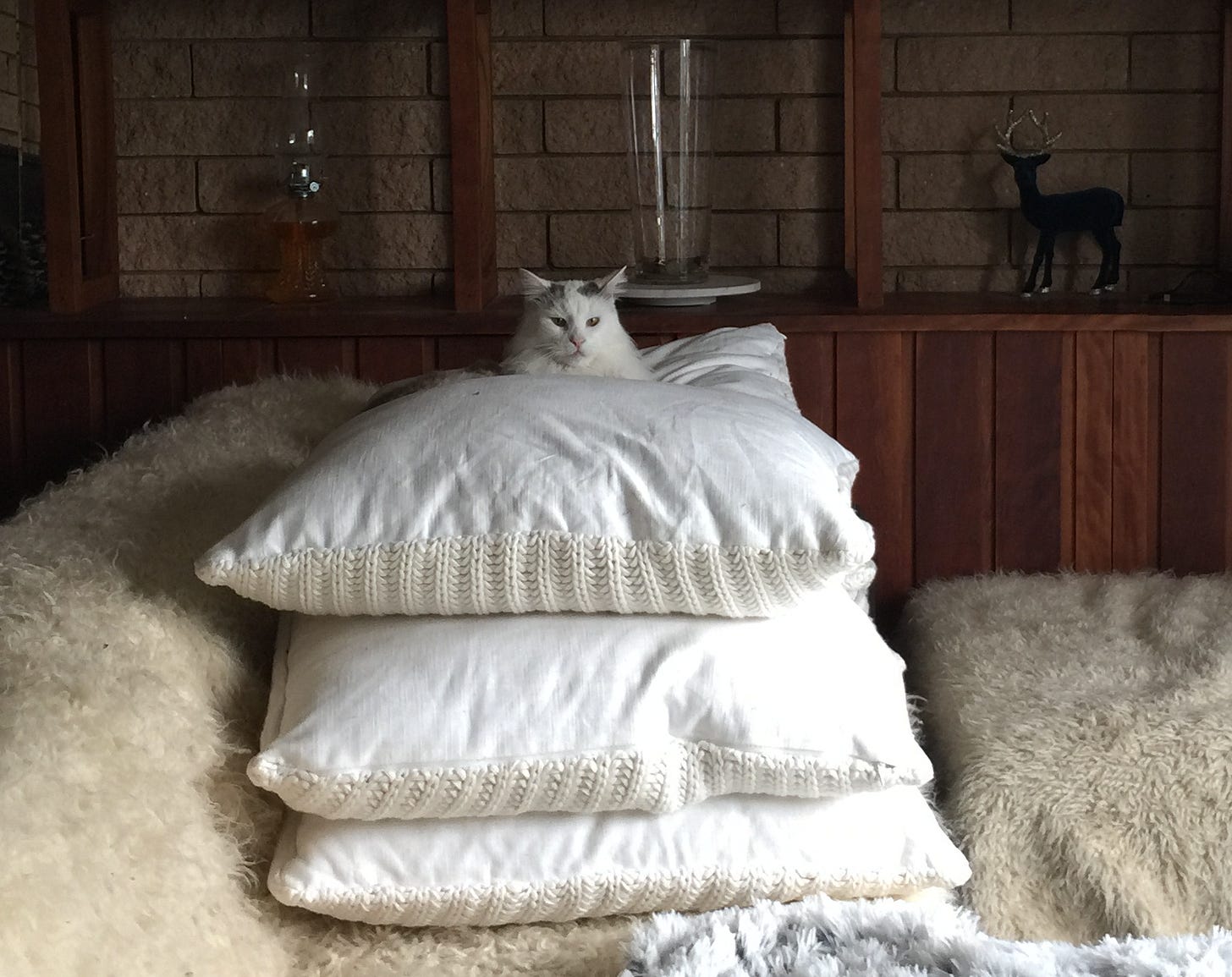Sleep
Known factors that affect sleep. Strategies to improve sleep duration, quality and good sleep habits – also known as - Sleep Hygiene.
Note: we have periodic Updates to many of the articles on Innerfood. See latest updates at end of article. Latest Update: 3rd September 2024
Just one or two adjustments to your sleeping regime can improve the quality and enjoyment of life.
Known factors that affect sleep. Strategies to improve sleep duration, quality and good sleep habits – a.k.a. Sleep Hygiene.
A quick 5 point Summary of what is to follow
A combination of many factors determines both quality and duration of sleep. Occasionally, just one change or tweak can improve your sleep. However, if seriously struggling with sleep, identifying and making several systematic and gradual changes related to sleep practices, can dramatically improve your mental and physical health. Taking the time to read this complete resource can significantly help. Key tips drawn from evidence are shown first in this 5 point summary. More follow that will help an individual’s unique situation.
Five Key Strategies for improving Sleep
Regularity is King
Develop constancy and rhythm. Go to bed at a similar time. Get up at same time. Both during the working week and the weekend.Keep it Cool
The body needs to drop its temperature a few degrees to help with falling asleep and staying asleep. Aim for optimal bedroom temperature around 18 degrees Celsius.Unless freezing outside, less clothes on in bed is better. Particularly down under.Comfort Counts
Don’t underestimate how important a comfortable bed is. Recent mattress technology advances are helping to enhance sleep quality dramatically.Chemical Catastrophes
Societal habits (Coffee, Alcohol & Nicotine), recreational drug use (Cannabis, Meth etc.) and withdrawal including longer-term addiction recovery, will unequivocally disrupt sleep. Ask for help if needed.We are Similar yet Remarkably Unique
What works for many may not work for you when it comes to sleep. Embrace your uniqueness and seek to consolidate the best quality sleep you possibly can. This resource can help.
“Quality sleep is a non-negotiable biological necessity and is not an optional lifestyle luxury.”
Matthew Walker, author of - Why We Sleep
Why we need Sleep
Quality Sleep helps us rejuvenate, reduce daytime fatigue, maintain correct weight, cleanse brain of toxic chemical build-up, release stress from day, detoxify the body, assimilate memories, heal the mind, enhance longevity, promote enthusiasm for life, optimise cognition and mental health & more.
Most will know full well how debilitating day to day fatigue and poor life quality can be as a result of sleep problems. Additionally, those getting less than 8 hours sleep per day and cruising along regardless, can seriously benefit from a wakeup call (no pun intended), so carefully and clearly articulated by sleep scientist Matthew Walker in this 18min TED talk - Sleep is your superpower
Matthew Walker from his TED talk entitled Sleep is your superpower
Additional Reasons why our sleep may be compromised and strategies to improve.
Please don’t underestimate the power of making even one small adjustment as listed below. For example, after 20 years of frequent waking during the night a client simply got rid of her LED clock next to the bed – great sleep thereafter.
Improving Sleep - Bedroom Environment
The bedroom is a sacred space. Miraculous rejuvenation, healing, deep rest and another chance to embrace a new day unfolds each night while we sleep in our own created sanctuary.
Avoid arguing or over thinking in the bedroom. Openly and lovingly communicate if partner, snoring, moving, getting up frequently.
Hours spent sleeping – aim for 8 hours. Recent mattress technology advances are helping to minimise movement disturbances and optimise comfort significantly.
Animals in the bedroom? Is this necessary? Allergies, noise and movement can wake you up.
Avoid sleeping with your young children if possible. Evidence shows that parents sleeping with young children have more disturbed sleep and sleep less.
Improving Sleep - Sensory Stimulation
Any stimulation of the senses during the night can potentially wake you up.
Light. Even a little bit counts. Light can penetrate the eyelids. Wakes you up. Dark curtains help. Absolutely no LED lights or clocks. A clock can also have a psychological effect that awakens you long before the time to get up. Blue light is stimulating (computers and TV’s). Try to avoid electronic devices in bedroom – especially TV’s, phones, tablets, computers. Avoid sleeping next to active power outlets or cables if possible. Use dimmer lights as bedtime approaches. Night-time toilet breaks –very minimal torch lights on while going to toilet, if any. Train to stay in bed longer if you can. However, we need bright light first thing in morningand during day once awake. Helps maintain Circadian Rhythm.
Noise can wake us up – fridges, neighbours, family, creaky house, dogs – do what you can to minimize or stop completely. However, some people respond positively (sleep is enhanced) to low volume background white noise like a fan running. The fan may also provide coolness and smoothing sensations on the face and hands for these people. See What is White Noise and Sleep with Fan.
Smells can wake you up – chemicals, pillows, personal care products, outside wood smoke, perfumes, clothes washing detergents.
Temperature fluctuations.
Avoid heat build-up in bed during the night. Too many blankets (or too thick), electric blankets, clothes, low quality gel mattress covers. Partners can generate heat – get enough space to keep cool. Keep window open if possible and safe, for fresh cool air ventilation in bedroom. On the other hand, feet and sometimes head can get too cold during night and this too will awaken you. Adjust bedding accordingly.
Improving Sleep - Habits & Self-Knowledge
Sometimes poor sleep quality and quantity can be the result of bad habits we have acquired, married with not knowing the long-term consequences of our actions. Or lack of training or simple information to develop self-efficacy with the result that we feel powerless to change.
Or not being in touch with or not knowing the wealth of inner resources available to us and assuming that our thoughts and personality are the full extent of who we are – that outward looking mask we show the world that is steeped in a particular culture, our upbringing and tradition. One definition of tradition is “peer pressure from the dead”.
It’s not a surprise that sleep and rejuvenating rest is impacted if we ignore our inner life. As humans we need help though our entire lifespan – help to listen, to learn and to be reminded of what’s important in this precious short time we have here on earth.
Bedtime Procrastination – also called – “Revenge Bedtime Procrastination” is a decision to sacrifice sleep for leisure time and is driven by a daily schedule lacking in free time. It is a way to find a few hours of entertainment even though it results in insufficient sleep. Understanding sleep procrastination, can help you recognize when you’re engaging in it. See What Is “Revenge Bedtime Procrastination”? for more understanding.
Expect to feel really alert ~1 hour before your natural bedtime. This is a naturally occurring spike in wakefulness that sleep researchers have observed. Don’t freak out if it happens. It will pass! (Thanks to Andrew Huberman Ph.D. for this)
Nutrition & Physical Activity
What you put in your mouth and to what extent you move your body will influence sleep quantity and quality.
Improving Sleep -Nutrition
As a general rule – Eat some protein in morning. Lighter meal at night. Some carbs at night can help tryptophan uptake across the Blood Brain Barrier, thus supporting serotonin and melatonin synthesis which in turn are related to mood and Circadian Rhythm.
Aim for an early meal at night. Don’t eat 2 hours before bed and don’t drink 1 hr before bed. Leave minimum 12 hours between last food intake at night and next meal in the morning
Support digestion, especially at night. Make foods easy to digest – soups, slow cooking, aim for smaller meals at night. Reflux –these strategies also help if you suffer from reflux.
Alcohol – higher than recommended amounts and in many cases, any alcohol will disrupt sleep during the night. Coffee can take 18hrs to fully clear from the body.
Food intolerances like lactose, preservatives, colours and more can also affect gastrointestinal function and health and subsequently impact sleep through gas build-up, discomfort and pain. Get evaluated to identify and do best to minimise. Elimination diet is gold standard for identifying food intolerances. We will publish the Elimination diet protocol that has proved remarkabley successful here soon, although note that supervision is recommended.
If taking Vitamin D or B-complex vitamins as a supplement, take them in the morning, as may keep you awake at night.
Hunger and /or thirst can wake you up – salty meal at night or pre-diabetes or hypoglycaemia
Off course overall nutrition needs to be optimal. Need adequate micronutrients like vitamins and minerals, essential fats, protein and fibre to support multiple metabolic processes like neurotransmitter & hormone production, detoxification and gastrointestinal health, that in turn have mechanisms that support sleep.
Improving Sleep - Physical Activity
As a general rule – Get some physical activity during day.
Exercise – “after lunch rest a while, after dinner walk a mile”. Physical activity during the day enhances sleep quality (½ hour – 1 hour walk per day as a minimum). Exercise earlier in the day is best and not to close to bed time. Note however, that too long or overly intense exercise during day can impact sleep quality and quantity.
Light stretching and hot showers before bed relaxes muscles and enhances sleep.
Improving Sleep - Comfort Counts
Improving Sleep - Extra Strategies
If have trouble sleeping or difficulty getting back to sleep then it may not be useful to get up and/or turn the light on and/or do work. While meditation or listening to a heartfelt message that draws you towards feeling peace has many many benefits and is fulfilling, it can also calm you down to the point where, if you are tired, then sleep comes knocking and before you know it, your gone.
What else affects Sleep - Medical and Mental Health concerns
Allergens can cause respiratory congestions or constriction and will wake you up – dust mites, compost outside window, rubber, dust, and mould. Get tested to identify and do best to minimise in the bedroom where we spend 1/3 of our life.
Metabolism - Melatonin plays an important role in sleep timing and cycles also known as the Circadian rhythm. Melatonin is made from serotonin which in turn is made from tryptophan, an essential amino acid (derived from protein we eat).
Other hormones produced in the body can also affect sleep quality if they are unusually elevated or diminished. Thyroid hormone (thyroxine, T4 and/or T3) can disturb sleep if elevated. On the other hand, low thyroid hormone can cause daytime fatigue. Post-menopausal hormone levels can also affect sleep. Low estrogen increases frequency of urination at night as can UTI (urinary tract infection) while in men, so can enlarged prostrate. Detoxification along with liver and kidney function can interfere with sleep. Use lab tests form your GP to see what is going on inside.
Sleep apnoea, which can be identified and diagnosed by a sleep clinic, can significantly increases risk of Cardio Vascular Disease. Normal breathing rhythm is affected in Sleep Apnoea and intermittently you can stop breathing altogether.
Snoring can disrupt – either in yourself and/or from partner. Caused by excess weight especially around neck, congested sinuses, allergies, nose anatomy and polyps. Simple to get checked.
Psychological/emotional concerns – fear, anxiety, posttraumatic stress. Get help and counselling when needed. Cognitive behavioural therapy. Talk therapy. Meditation. Mindfulness. Become conscious of your Fears, Habits and Beliefs. What’s keeping you trapped and stuck. Depression can affect sleep. Get help. Over-active mind but underactive feelings such as peace and contentment and joy. Can be worked on to great benefit.
Stress – reduce, reduce, reduce. Shorts bursts of either mental or physical stress are good for us as long as they are interspersed by rest periods. Chronic stress however is damaging to our physiology and mind and can effect sleep creating a vicious cycle.
Bullying at home or work – get it resolved. Get help. Speak up. Or Leave.
Pain will wake you up or keep you awake, even at low levels. Get it resolved and get help where possible
Chronic illness can affect sleep quality and make effort to resolve any chronic condition via expert help or research.
Recurring disturbing dreams can wake you up. If having trouble getting back to sleep or if you would like to understand why these eruptions from the unconscious keep happening, seek help.
See article below as I discuss intense dreams and strategies to resolve them.
Medications – i.e. statins, can interfere with sleep. Check with your GP.
Shift Work - Working unusual hours or shift work, especially all night. Can affect Circadian rhythm and not only affect sleep quality and quantity but also other health outcomes in general.
Sleeping and Being a teenager
Circadian rhythms are physical, mental and behavioural changes that follow a roughly 24-hour cycle, responding primarily to light and darkness in an organism’s environment.
“Changes to the circadian rhythm occur during adolescence, when most teens experience a sleep phase delay. This shift in teens' circadian rhythm causes them to naturally feel alert later at night, making it difficult for them to fall asleep before 11:00 pm. Since most teens wake up early for school and other commitments, this sleep phase delay can make it difficult to get the sleep teens need -- an average of 9 1/4 hours, but at least 8 1/2 hours. This sleep deprivation can influence the circadian rhythm; for teens the strongest circadian “dips” tend to occur between 3:00-7:00 am and 2:00-5:00 pm, but the morning dip (3:00-7:00 am) can be even longer if teens haven’t had enough sleep, and can even last until 9:00 or 10:00 am.”
REF http://www.sleepfoundation.org/article/sleep-topics/sleep-drive-and-your-body-clock
Identifying Sleep Disorders
A sleep disorder refers to conditions that affect sleep and impacts a person’s ability to properly function while awake. A sleep disorder can contribute to other medical problems and medical or mental health issues can have symptoms of, or contribute to, a sleep disorder.
If you spend a great deal of time lying awake in bed at night or frequently nod off during the day, you may have a sleep disorder. A variety of sleep disorders can cause similar symptoms, such as excessive daytime sleepiness. If you suspect you have a sleep disorder, and nothing in this resource has helped, it is important to seek the expert opinion of your GP and/or a sleep specialist. Sleep clinics can do extensive investigations.
Sleep apnoea, which can be identified and diagnosed by a sleep clinic, can significantly increases risk of Cardio Vascular Disease
See Sleep Disorders for more information
There are sleep clinics available in Tasmania and all over Australia. They help diagnose more specifically an unresolved chronic sleep problem and as such offer more specific strategies and treatments. Ask your GP for a referral.
Additional Resources
Sleep Hygiene - The Sleep Foundation
What Can Disrupt Circadian Rhythm? – Also from the Sleep Foundation
Recent Published Research of Interest
Circadian and Metabolic effects of Light: implications in Weight Homeostasis and Health
“Smoking was also associated with an increased prevalence of sleep-related respiratory disorders, which further worsened sleep quality and daytime sleepiness. Primarily symptoms of insomnia, such as increased sleep latency, sleep fragmentation and decreased slow wave sleep with reduced sleep efficiency and increased daytime sleepiness, were observed during nicotine consumption. Furthermore, most studies indicated a nicotine induced rapid eye movement (REM) sleep suppression.” - Effects of nicotine on sleep during consumption, withdrawal and replacement therapy
“Findings suggest that early awakening may be the mechanism responsible for the association between nicotine addiction severity and poor sleep outcomes of shorter sleep duration and excessive daytime sleepiness” - Severity of Nicotine Addiction and Disruptions in Sleep Mediated by Early Awakenings
“Insomnia is a clinically verified nicotine withdrawal symptom. As nicotine is a stimulant, it is plausible that smoking at night could disturb sleep more than smoking at earlier times of the day…” - The associations between cigarette smoking with insomnia severity and sleep duration
“…higher nicotine doses in cigarettes were associated with more sleep disturbances.” - Assessing the effect of nicotine dose in cigarette smoking on sleep quality
Article Update - 3rd September, 2024
The Australian ABC is featuring a focus on sleep and calling it "Sleeptember” as it is in September 2024. A great article on their site is Not getting enough sleep? This is what’s happening to your body and brain
Notably, in this study, even among participants who slept between 7 and 9 hours per night, average sleep duration was outside the recommended sleep duration range on ∼40% of nights. Given that the under-mattress sleep sensor used in this study overestimates sleep by about 30 minutes on average, even more adults than the rate reported here may be regularly sleeping less than 7 hours.















Very complete list of possibilities for those with sleep problems.
In the US, the Chemical Catastrophes are probably a bigger player than elsewhere in the world. We have more UPF's containing neurotoxic chemicals that affect our brain metabolism, including our sleep cycles. Whenever I inadvertently eat something with chemicals in it, I fall asleep early, wake up in the middle of the night, then can't get back to sleep, followed by a headache in the morning.